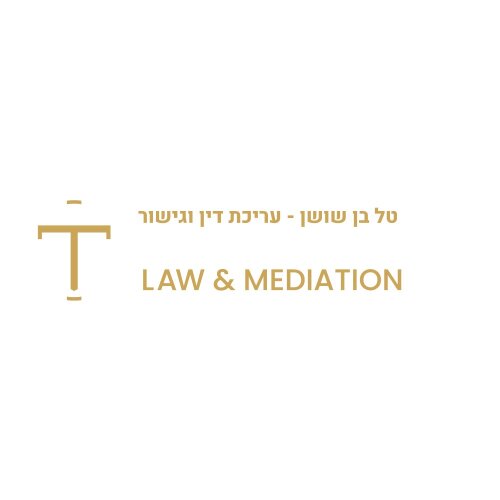Best Nonprofit & Charitable Organizations Lawyers in Israel
Share your needs with us, get contacted by law firms.
Free. Takes 2 min.
Or refine your search by selecting a city:
List of the best lawyers in Israel
About Nonprofit & Charitable Organizations Law in Israel
Nonprofit and charitable organizations in Israel are integral to addressing social needs and promoting community welfare. These entities are primarily governed by the Registrar of Non-Profits and are required to operate on a not-for-profit basis. The legal framework ensures that these organizations comply with specific regulations that support transparency, accountability, and the proper management of resources dedicated to public purposes.
Why You May Need a Lawyer
There are several scenarios where legal assistance might be necessary for those dealing with nonprofit and charitable organizations in Israel:
- Setting up a new nonprofit organization and meeting all legal registration requirements.
- Ensuring ongoing compliance with Israeli laws and regulations governing nonprofits.
- Guidance on tax-exempt status and related legal obligations.
- Resolving disputes within non-profit management or with third parties.
- Assisting with merger decisions or strategic partnerships with other organizations.
- Handling international donations and ensuring compliance with both Israeli and international laws.
Local Laws Overview
The legal structure governing nonprofits in Israel is quite comprehensive and includes various laws and regulations. Key aspects include:
- The Amutot Law (1980): Governs the registration and operation of 'amutot' (association) and sets standards for transparency and management.
- Internal Revenue Service (IRS) Regulations: Nonprofits must comply with tax regulations to maintain their tax-exempt status.
- Reporting Requirements: Organizations need to file regular reports and audited financial statements with the Registrar of Non-Profits to ensure operational transparency.
Frequently Asked Questions
What is the first step in forming a nonprofit in Israel?
The first step is to register your organization with the Registrar of Non-Profits. This involves submitting the necessary documentation, including articles of incorporation and details about the organization's goals, structure, and management.
Are there ongoing compliance requirements for nonprofits?
Yes, nonprofits in Israel must meet several ongoing requirements, such as submitting annual financial reports, maintaining accurate records, and conducting annual general meetings.
Can nonprofits in Israel engage in commercial activities?
Nonprofits can engage in certain commercial activities as long as these are directly related to their social goals and any profits are reinvested back into the organization.
How is a nonprofit's tax-exempt status determined?
Tax-exempt status is granted to organizations whose objectives meet specific criteria outlined by the Tax Authority. Organizations must apply and provide supporting documentation to obtain this status.
What is the role of the Board of Directors in a nonprofit?
The Board of Directors is responsible for overseeing the organization's operations, ensuring it adheres to its mission, and making strategic decisions to advance the nonprofit's objectives.
Do nonprofits pay taxes on donations received?
Generally, donations received by a nonprofit are not subject to taxation, provided the organization maintains its tax-exempt status and complies with reporting requirements.
Can a nonprofit distribute its income to members?
No, a key principle of nonprofits is that income cannot be distributed to members, directors, or officers. Income must be used solely to further the organization's social missions.
What happens if a nonprofit fails to comply with legal requirements?
Failure to comply can result in penalties, fines, or even loss of nonprofit status. It's crucial for organizations to ensure they meet all legal and regulatory obligations.
Are there specific audit requirements for nonprofits?
Yes, nonprofits must undergo annual audits conducted by certified public accountants to ensure financial transparency and accountability to donors and the public.
How can foreign entities collaborate with Israeli nonprofits?
Foreign entities can collaborate through structured partnerships, direct support, and joint initiatives, ensuring compliance with international and Israeli legal frameworks.
Additional Resources
The following resources can be helpful for those seeking further information or legal advice:
- Registrar of Non-Profits: The governing body for nonprofit registration and compliance information.
- The Israel Tax Authority: For details on tax exemptions and regulations.
- The Association of NGOs in Israel: A supportive community offering resources and networking opportunities.
Next Steps
If you seek legal assistance with nonprofit and charitable organization matters in Israel, consider these steps:
- Identify and evaluate your legal needs, whether it's registration, compliance, or dispute resolution.
- Consult with a legal expert specializing in nonprofit law to discuss your situation and obtain personalized advice.
- Leverage available resources and professional networks to stay informed about changes in regulations and best practices.
Lawzana helps you find the best lawyers and law firms in Israel through a curated and pre-screened list of qualified legal professionals. Our platform offers rankings and detailed profiles of attorneys and law firms, allowing you to compare based on practice areas, including Nonprofit & Charitable Organizations, experience, and client feedback.
Each profile includes a description of the firm's areas of practice, client reviews, team members and partners, year of establishment, spoken languages, office locations, contact information, social media presence, and any published articles or resources. Most firms on our platform speak English and are experienced in both local and international legal matters.
Get a quote from top-rated law firms in Israel — quickly, securely, and without unnecessary hassle.
Disclaimer:
The information provided on this page is for general informational purposes only and does not constitute legal advice. While we strive to ensure the accuracy and relevance of the content, legal information may change over time, and interpretations of the law can vary. You should always consult with a qualified legal professional for advice specific to your situation.
We disclaim all liability for actions taken or not taken based on the content of this page. If you believe any information is incorrect or outdated, please contact us, and we will review and update it where appropriate.
Browse nonprofit & charitable organizations law firms by city in Israel
Refine your search by selecting a city.
















